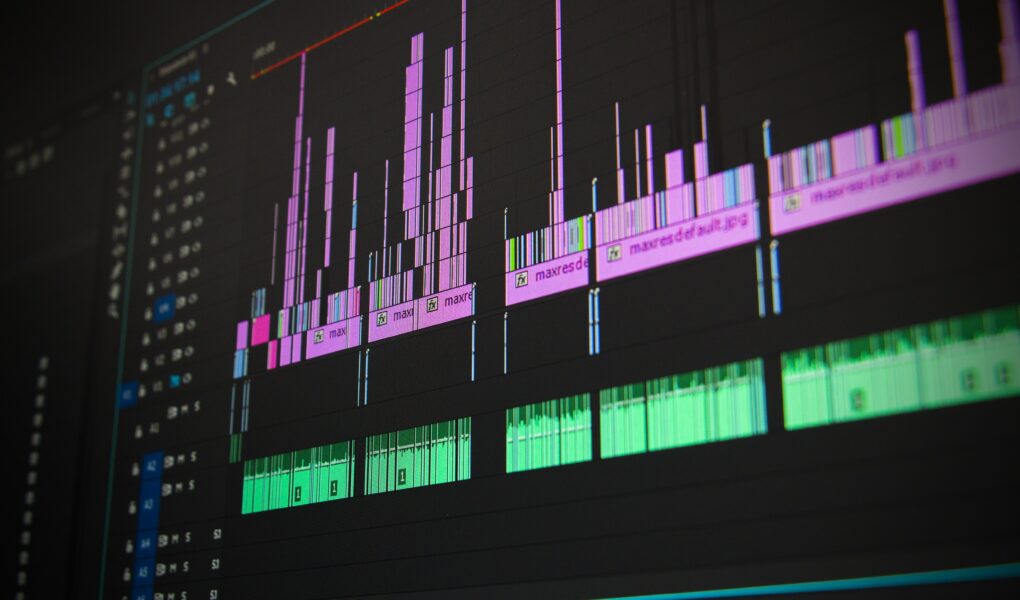On the trail of the secrets of sound
Author: Dietlinde Küpper
Category: Art / Music / Literature
Issue No: 90
How can it be that music and sounds can trigger such strong feelings, clear insights or even transcendent experiences in us? The author sets out in search of answers, allowing musicians as well as musicologists to have their say, in order to shed light on our mystical relationship to the world of sound. Special attention is given to the music of Johann Sebastian Bach, who has been called the “fifth evangelist”.
Music is higher revelation than all wisdom and philosophy.”
-Ludwig van Beethoven
In August 2020 I traveled to Berlin, it was the first summer of the pandemic, in the open-plan compartment of the train we sat with masks on, careful to keep our distance. We were all confronted with this unfamiliar situation, it was strange and oppressive. The capital was strangely empty, one saw – quite differently than usually – only few tourists. This was of course quite pleasant, there was space everywhere, on the ship, in the café, but I could not really enjoy it. I pondered over the countless people who just have to experience great suffering, even if it was not so directly visible. Who was just sitting in the apartment and despairing? An underlying sadness held me captive.
With these thoughts, I descended the stairs to the subway station, and from below came the sound of an accordion: a well-known organ piece by Johann Sebastian Bach. The music struck me at the core, like crystal drops from another world, the tones seeped into my soul and permeated it with warmth and comfort. In an instant the perspective turned, in complete clarity I saw before me that we are not alone, that there is a transcendent world full of love and light and that we are in the middle of it, with all our suffering and joy interwoven in it. Whether we suspect it or don’t even realize it, whether we know it with certainty or reject such thoughts with deep conviction: Each, every one of us does not fall into the void with our own pain and anguish, even if we sometimes do not feel or remotely suspect this comfort.
Music has the power to strike us deep in the heart and leave an echo there.
THE HIDDEN REALITY
What is transcendence? It is the invisible behind the visible, that which includes and carries the visible, what religious people mean when they write, for example, “Wonderfully sheltered by good powers, we confidently expect what may come.” (the theologian Dietrich Bonhoeffer a few weeks before his murder by the Nazis) It sounds more abstract in the “Heart Sutra” from Buddhist philosophy: “Form is nothing but emptiness, emptiness is nothing but form.”
The world-renowned monk and Zen master Ko’un Roshi Willigis Jäger, who died in 2020 and who spent most of his life researching and experiencing these things, wrote in his book The Wave is the Sea:
The reality that we think is real is not the real reality.
The real reality opens up to us only when we leave our everyday ego-consciousness and enter a higher sphere of consciousness.
and enter a higher sphere of consciousness. This sphere of consciousness can be called … transpersonal consciousness.” (Willigis Jäger: The Wave is the Sea / Mystical Spirituality, Freiburg 2000, p. 32)
The contact with the actual is difficult to put into words, our language seems to be quite unsuitable to name such things in a “tangible” way. Even if we have already come into contact with this change of perspective from seemingly other dimensions – in normal everyday life this opening expanse usually remains hidden, as if behind a curtain, which nevertheless sometimes slides aside quite unprepared.
THE MYSTERY OF “MUSIC
In the world there are infinitely many kinds of music, from different times and social classes, there was – as far as can be determined – hardly a people or a society that wanted to live without it. But what is music? Why do we need it? Mostly it resonates with our emotional life, which can have a lightness as in happy folk music or be very serious and intense as in Indian ragas or Gregorian chants.
Music works through our feelings and on layers within us that do not have much to do with thinking, with ratio.
The 19-year-old Franz Schubert, who did not exactly have it easy in life, reports in his diary about a touching experience. He had attended a concert with music by an older colleague who had already died, which resonated in him in many ways: “A bright, light, beautiful day this will remain throughout my life. As if from a distance, the magic notes of Mozart’s music still echo in my ears … Thus, these beautiful imprints remain in our souls, which no time, no circumstances blur and have a beneficial effect on our existence. They show us in the darknesses of this life a light, bright, beautiful distance, for which we hope with confidence.” (June 13, 1816, www.zeno.org)
What exactly we feel about music we like is as varied as there are people who listen to it. But whether we blissfully sing along to Helene Fischer, start flying when we dance a waltz, whether we settle into a great shared feeling at a rock concert, or whether a string quartet by Fanny Hensel touches us deeply, it doesn’t seem to be completely arbitrary what a music triggers in us. For example, no one is likely to think of Johannes Brahms’ stirring Violin Concerto as serene and resolved, or Gianna Nannini’s “bello e impossibile” as restrained and contemplative.
Sooner or later in our lives we come across the theory that everything that exists is sound and tone. What is more exactly behind it, you will learn in the full version of the article. Follow the link after the text excerpts and dive into the world of sound.
What is genius? What is the source of such comprehensive knowledge, which often gains contour in the human mind in a flash? Some artists clearly feel that they “receive” inspirations, as if they as a person are not really responsible for their ideas.
.
.

.
.
Although Bach’s music seems to reflect cosmic orders in a secret way, it goes beyond that: it penetrates to the deepest pain that humans have to experience. We do not know much about Bach’s life and character, since few letters or other testimonies have survived. The few dates of his life that we know for sure, however, allow us to conclude that he must have been familiar with the feeling of complete despair. Thus, as a young man, fate hit him with full force: he returned from a work trip in Carlsbad – his wife Maria Barbara was dead and already buried. In addition to the shock, this could have been a trigger for a violent retraumatization, because as a nine-year-old he had already lost first his mother and then his father within a few months of each other. We know nothing about how the 35-year-old dealt with this brutal turning point in his life. Around 1720, close to the time of the death of his first wife Maria Barbara – whether before or after, we do not know for sure – he composed an exceptional work that has not lost its charisma to this day: the Chaconne in D minor for solo violin, the last part of Partita II in D minor, BWV 1004.
The pianist Hélène Grimaud transcribed the Chaconne for her instrument and said of the work in an interview: “It resembles the architecture of a cathedral, the individual variations are like light falling through differently tinted glass windows. When you play it, you feel like you’re dancing with your own shadows.” (www.violinorum.com)
About the author: Dietlinde Küpper
After completing her master’s degree in German and musicology, Dietlinde Küpper worked for five years in Italy as a teacher and translator. For Bayerischer Rundfunk and Deutsche Welle, the author wrote features on Mozart, Handel, and contemporary music, among others, as well as several essays on Richard Wagner. She published a study on the American symphonist Gloria Coates.
This article appeared originally on the German Homepage of Tattva Viveka: https://www.tattva.de/musik-als-tor-zum-transzendenten/




